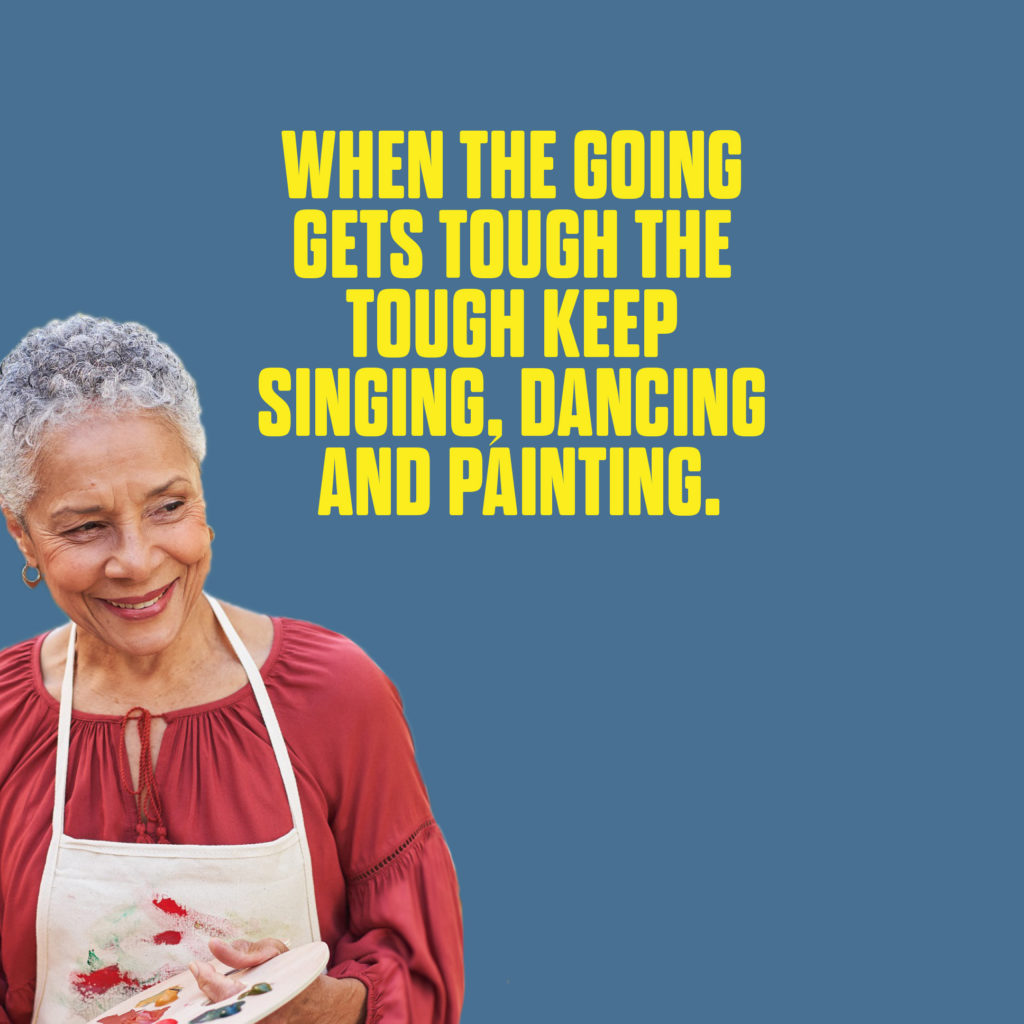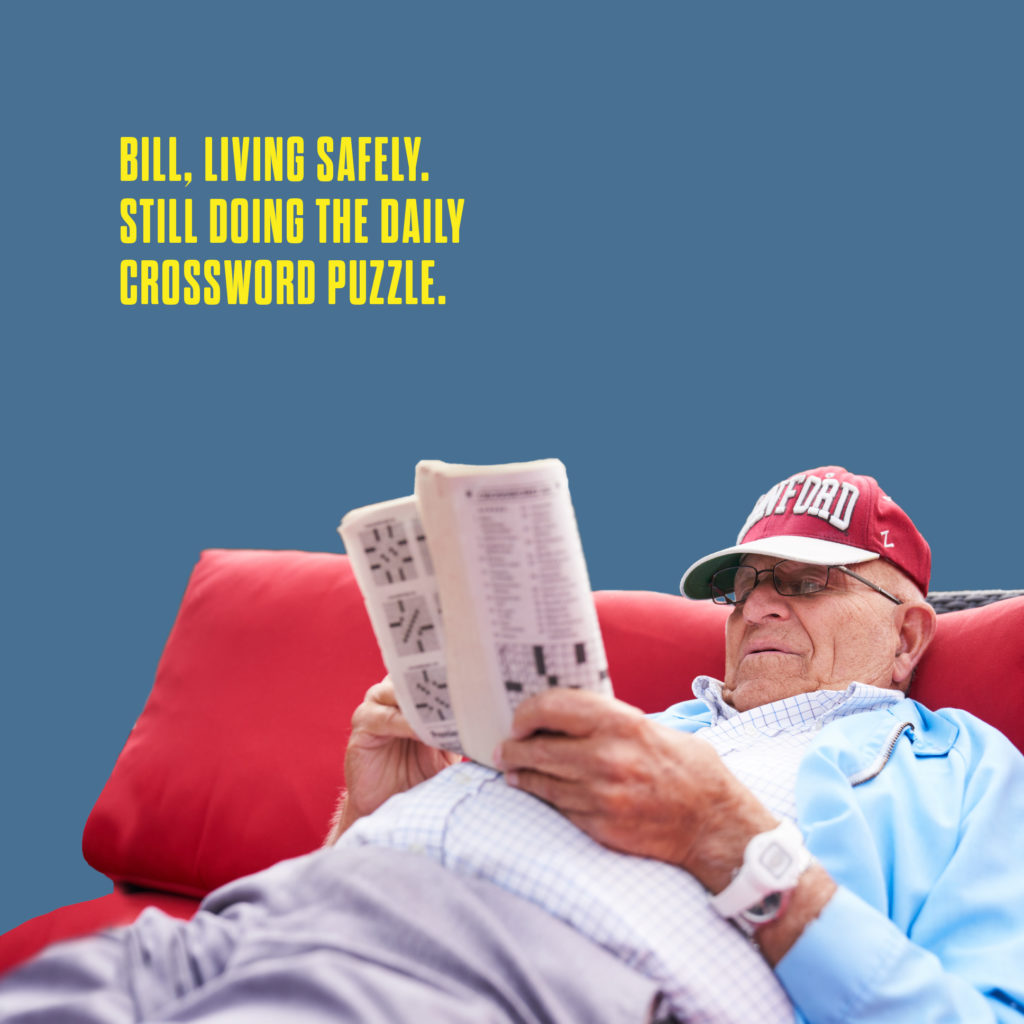As a result of Covid-19, some senior living providers are shifting their operational model from one that primarily emphasizes hospitality and socialization to one that focuses on high-quality clinical care.
This shift could be a watershed moment for the industry, which has long debated whether the private-pay senior living product is — and should be — primarily a hospitality or health care offering.
At the outset of the pandemic, some industry watchers hoped for a quick recovery. But with no end in sight for the coronavirus, senior living providers are now making more permanent changes to their communities and operations in order to survive and thrive in the current era. New communities are opening with increasingly sophisticated infection control measures built in, and providers are tweaking their marketing and staffing models to emphasize health care expertise with future residents in mind.
All of this has helped push the industry toward a new normal that is more focused on medical care than before the pandemic. Just ask Tom Laborde, former COO and new infection control and safety officer at Aegis Living, a Bellevue, Washington-based senior living provider that operates 32 assisted living and memory care communities.
“For the longest time, our focus was on making sure that we were giving outstanding care to our residents, but with a social model,” Laborde told Senior Housing News. “Well, that focus has changed … and we have to make sure that health care is a greater focus in our communities, as well.”
In-house expertise
Covid-19 is a disease that disproportionately affects older adults — and that fact is weighing on prospective residents and their loved ones. Although senior living customers still by and large trust the industry, they are also more afraid to engage with it than before.
“So many people are afraid of either coming into a senior living situation or having a parent go into one,” Laborde said. “The way that we’re managing this [is by] creating one the safest environments you can have.”
Aegis has helped create that safe environment in part by bolstering its own in-house infection control expertise. The provider in June formed a coronavirus advisory council composed of seven physicians and medical experts representing various disciplines including epidemiology, immunology, geriatrics, psychology and naturopathy. The council is slated to meet four times annually, with other meetings as needed.
The provider is using that new expertise to better educate and equip its staff to deal with the rigors of Covid-19.
“I think all of us in the industry are becoming a lot more savvy with some of the procedures that, before all this happened, were commonplace in hospitals,” Laborde said. “That’s an example of how our industry has been required to be more medically focused.”
It’s a trend that is playing out at other companies, too. Artis Senior Living this month launched a new safety council in partnership with Johns Hopkins physicians and a cross-disciplinary group of its own employees.
In other cases, senior living providers are turning to outside parties for help in dealing with Covid-19. Some have brought on doctors and other health care experts to help lead their Covid-19 game plan. That includes Bethesda, Maryland-based Meridian Senior Living, which recently partnered with a testing lab and hired a medical director to support the company’s Covid-19 efforts. And Denver-based Solera Senior Living brought in a team of disease experts from Denver’s Rose Medical Center known as the “Covid Consultants” to help craft and hone its infection control protocols.
Aegis has also made a concerted effort to employ cutting-edge infection control technology in its communities. Aegis since February has employed Covid-19 screening capabilities from touchscreen visitor management system Accushield. Carlsbad, California-based Kisco Senior Living has also implemented this technology. The company also now uses plexiglass-wrapped “outdoor living rooms” for residents to visit with family members.
Aegis is planning to install and pilot “air-scrubbing” devices from RGF Environmental Group in its new communities as they open. Additionally, the company has struck a partnership to produce hypochlorous acid, an EPA-approved and Green Seal-certified disinfectant that isn’t toxic to humans. Aegis can disperse the disinfectant using an electrostatic fogger, which is useful for cleaning the air and hard-to-reach surfaces throughout a community.
In addition to these measures, the company has also reinforced more traditional infection control protocols, such as enforcing mask-wearing and social distancing measures.
Aegis is complementing its infection control measures with an effort to inform prospective residents and their loved ones of what it has done — and in fact, it would be irresponsible not to, Laborde said.
The company’s new marketing efforts focus on infection control, with advertising bearing slogans such as: “When the going gets tough, the tough keep singing, dancing and painting,” and, “It’s a scary world out there. Not as much in here.”
“We’re talking about our infection control practices, [and] we’re talking about some of the technologies we’re implementing,” he explained. “We’ve got to help alleviate the fear that’s out there by letting people know what we’re doing to keep them safe.”
And Aegis is not alone in taking steps to both enhance its clinical capabilities and market that fact as a competitive differentiator.
Windsor, California-based Oakmont Senior Living also has done so. The company made a sizable investment in clinical care as a result of Covid-19, including setting up a multi-discipline task force aimed at getting all of the company’s stakeholders involved in the Covid-19 mitigation effort, converting some of its senior housing units to quarantine rooms, linking up with a laboratory and hiring a medical director.
And Oakmont underwent a complete sales transformation earlier this year, putting that new focus on health care, safety and sanitization at the forefront of its marketing and sales efforts. Specifically, the company changed its marketing campaign to focus not on high-end amenities, but on safety, access to health care, services and support, creative engagement, access to testing and medication.
Designing for infection control
Just as providers are modifying their operations for the new pandemic age, they are also changing the way their communities are designed.
Specifically, Covid-19 is causing senior living architects to incorporate more hospital-like features into their designs, according to Walter Marin, Founder of Marin Architects. Based in New York City, Marin Architects focuses on hospitality, educational and commercial design projects, including some senior living.
“We are working on ways where we can bring the hospitals and health care services to our senior living clients,” Marin told SHN. “An obvious response to post-Covid-19 senior living will be [a move toward communities] with mechanical systems like a hospital.”
Already, there are communities opening today with enhanced infection control measures built into the design. And although these measures have so far been minimal given the relatively small amount of time that has passed since the pandemic began, they signal that larger changes are perhaps just around the corner.
One such example is Evin at Oconomowoc, a roughly $24 million senior living community from Wauwatosa, Wisconsin-based Koru Health. The 83-unit community is slated to open later this year with a type of hospital-grade air purification system also utilized by the UW Health University Hospital in Madison, Wisconsin, and the Mayo Clinic, according to Koru Health President and Founder Andy Lange.
“We were in the branding and marketing process right when Covid hit, so we were listening to customers and we were trying to understand their fears and the hurdles they had to making a lifestyle change,” Lange said.
The community will also have a touchless lock and key system, commercial laundry and washers aimed at infection control, a video-capable entry system for visitors and residents and a UV water purification system.
 Evin at Oconomowoc / Koru Health
Evin at Oconomowoc / Koru HealthAlthough Koru Health was already thinking about upgrading the new community’s infection control standards prior to Covid-19, the pandemic has only underscored how important those discussions will be in future communities. Specifically, Lange believes that future customers will see infection control as yet another box to check on their must-have list — although what’s on that list can vary by market, with greater population density creating more concern related to communicable diseases.
“Somewhere that has a higher population … I think those folks are going to be much concerned about infection control,” Lange told SHN. “Whereas people from a smaller area … may be aware of it, but it may be less of a factor that is driving their decision.”
But above all else: “I think the awareness and the education of our consumer is going to only increase,” Lange said.
Koru Health is not the only provider to debut a community that emphasizes infection control design.
Developer Braemar Partners and operator Greenbrier Senior Living are collaborating on an 88-unit senior living community set to open next year in the Austin, Texas, suburb of Bee Cave. The community, Longleaf Bee Cave, will come with HEPA filtration systems, disinfectant UV lighting and anti-microbial surfaces to combat Covid-19 and other infectious diseases.
Aegis is also examining how its future communities are designed. And although the company hasn’t yet landed on any concrete ideas, Laborde said it’s taking a closer look at design features that group residents into smaller, more easily isolated pods.
Still, while Covid-19 has pushed the industry to move in favor of providing more clinical services, that doesn’t mean senior living should abandon hospitality and become institutional, either, said Brenda Bacon, Brandywine Living’s president and CEO.
“We never really declared ourselves an industry; are we health care or hospitality?” Bacon asked during an SHN Changemakers interview earlier this year. “If Covid has taught us anything, it has taught us that we are health care, but it doesn’t mean that we have to be health care in the traditional sense of a hospital or a nursing home.”





